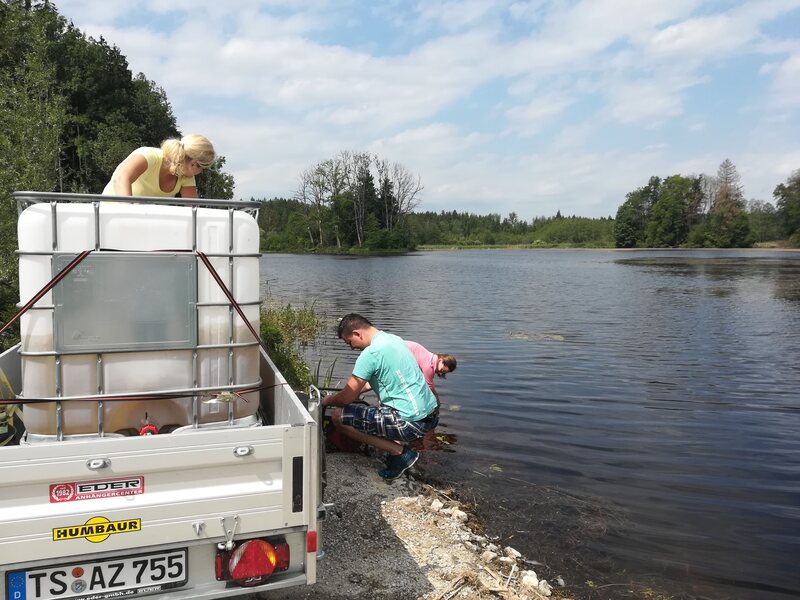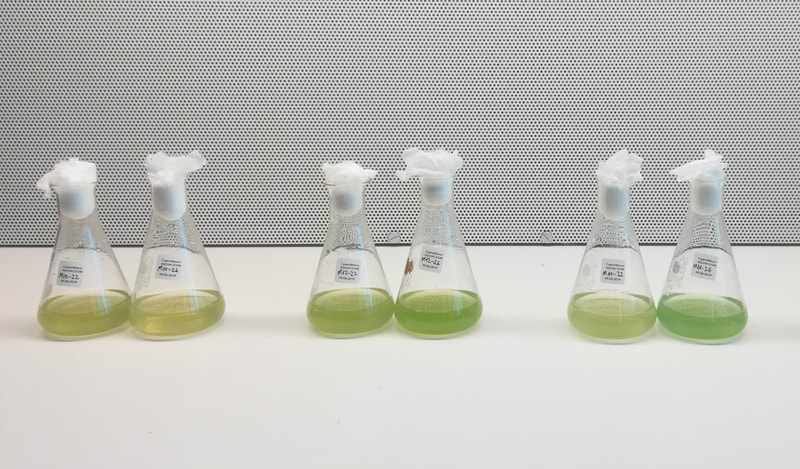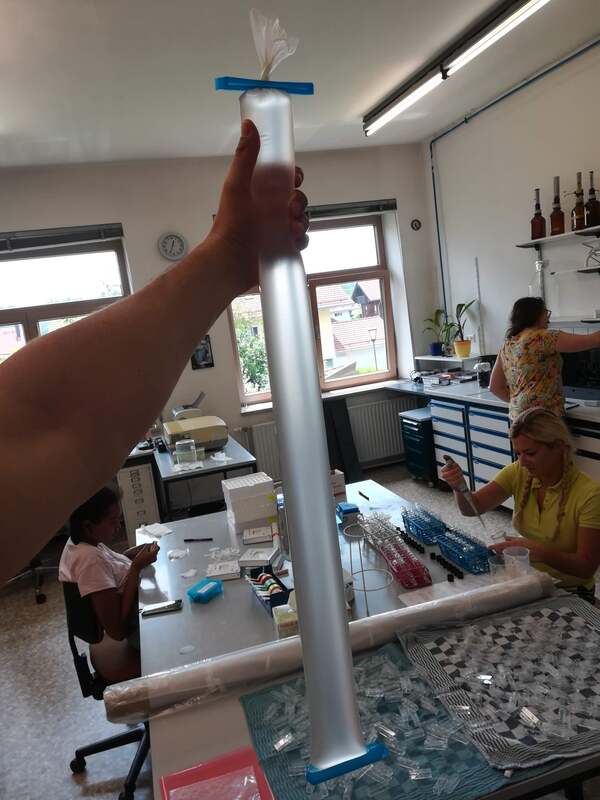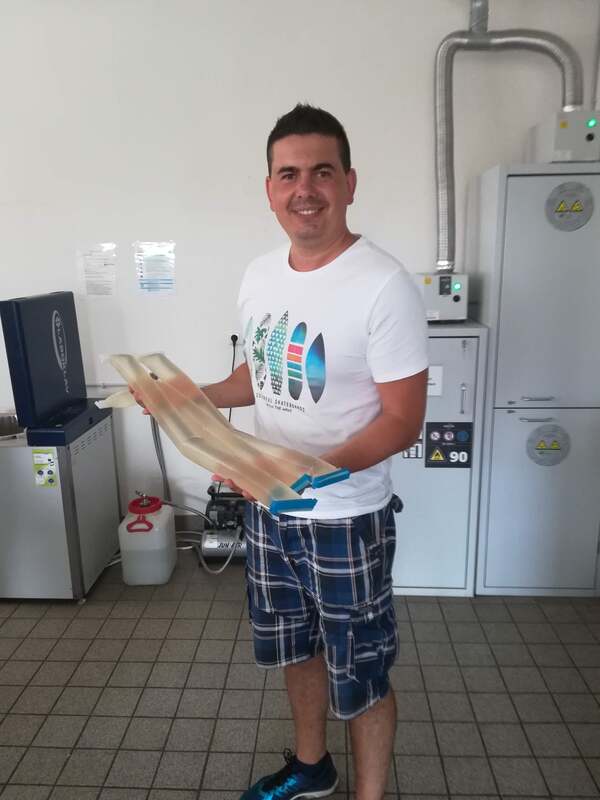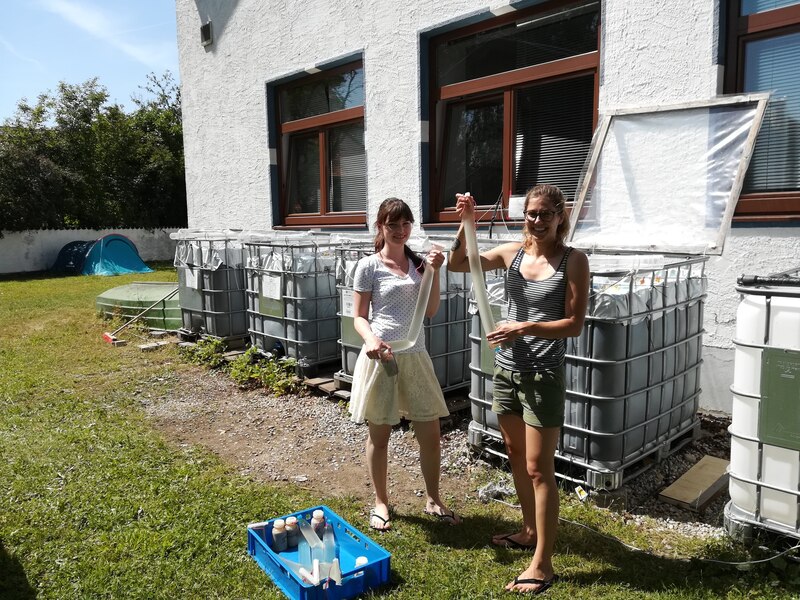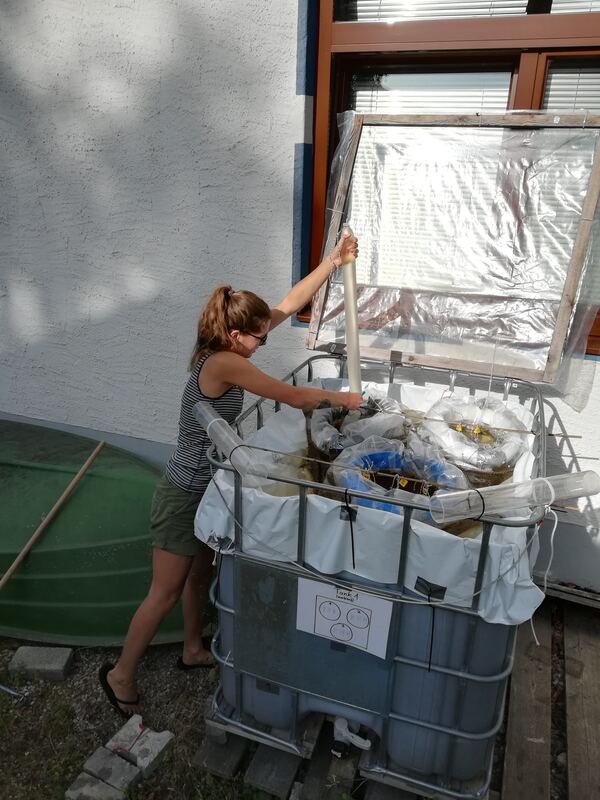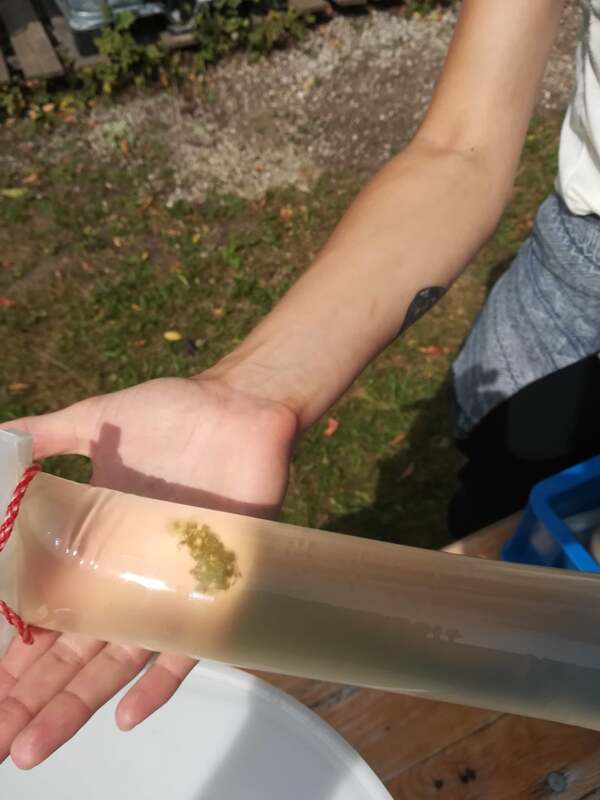Aquacosm is an EU-network connecting freshwater and marine large experimental research infrastructures. The main objective of the program is to coordinate research, develop common best practices and open both freshwater and marine large-scale research infrastructures (mesocosms) for international cross-discipline participation. Mesocosms are experimental enclosures of large volumes (1-1000 ㎥) of natural water, used to measure the separate effects of multiple stressors on whole ecosystems over weeks to years.
Transnational Access (TA) is an AQUACOSM initiative aiming at offering to interested scientists the chance to work in 37 European mesocosm facilities located at 19 AQUACOSM partners across Europe.
Transnational Access (TA) is an AQUACOSM initiative aiming at offering to interested scientists the chance to work in 37 European mesocosm facilities located at 19 AQUACOSM partners across Europe.
The CyanoWarm-TA project was granted during the 2018 AQUACOSM-TA call, and it was conducted in May-July 2019 at the Seeon Limnological Station (SLS) belonging to Ludwig Maximilian University (LMU) of Munich, Germany. The project was connected to the ongoing CyanoWarm project from the Institute of Biological Research in Cluj-Napoca, Romania.
MAIN OBJECTIVE: testing the competitive ability of cyanobacteria previously adapted to higher temperature (in the context of global warming).
Background: Cyanobacteria (the oldest known group of photosynthetic organisms, and also one of the most abundant primary producers in aquatic ecosystems), are generally predicted to increase in dominance under climate change, though empirical data on their evolutionary responses are scarce.
We use 3 toxin-producing Microcystis aeruginosa strains which were previously adapted to 22°C and 26°C. We test their competitive abilities after being inoculated into natural plankton communities (from the eutrophic lake Bansee, Bavaria, Germany). The experiments are conducted in 1000 L land-based mesocosms, with each experimental community being enclosed in 1.5 L dialysis bags, which are permeable for nutrients but not for cells.
The hypothesis is that cyanobacteria which are pre-adapted to warming are better competitors against the other phytoplankton groups (green algae, diatoms etc.) as compared to non-adapted strains. Knowing this would be highly relevant for the future of aquatic ecosystems in the context of climate change.
MAIN OBJECTIVE: testing the competitive ability of cyanobacteria previously adapted to higher temperature (in the context of global warming).
Background: Cyanobacteria (the oldest known group of photosynthetic organisms, and also one of the most abundant primary producers in aquatic ecosystems), are generally predicted to increase in dominance under climate change, though empirical data on their evolutionary responses are scarce.
We use 3 toxin-producing Microcystis aeruginosa strains which were previously adapted to 22°C and 26°C. We test their competitive abilities after being inoculated into natural plankton communities (from the eutrophic lake Bansee, Bavaria, Germany). The experiments are conducted in 1000 L land-based mesocosms, with each experimental community being enclosed in 1.5 L dialysis bags, which are permeable for nutrients but not for cells.
The hypothesis is that cyanobacteria which are pre-adapted to warming are better competitors against the other phytoplankton groups (green algae, diatoms etc.) as compared to non-adapted strains. Knowing this would be highly relevant for the future of aquatic ecosystems in the context of climate change.
Key people
Dr. Bogdan Druga - Research Scientist, Institute of Biological Research, Cluj-Napoca, Romania.
Dr. Maria Stockenreiter - Assistant Professor, LMU Munich, Germany.
Elisabeth Ramm - MSc student, LMU Munich, Germany.
Elisabeth Winter - BSc student, LMU Munich, Germany.
Dr. Bogdan Druga - Research Scientist, Institute of Biological Research, Cluj-Napoca, Romania.
Dr. Maria Stockenreiter - Assistant Professor, LMU Munich, Germany.
Elisabeth Ramm - MSc student, LMU Munich, Germany.
Elisabeth Winter - BSc student, LMU Munich, Germany.
GALLERY

